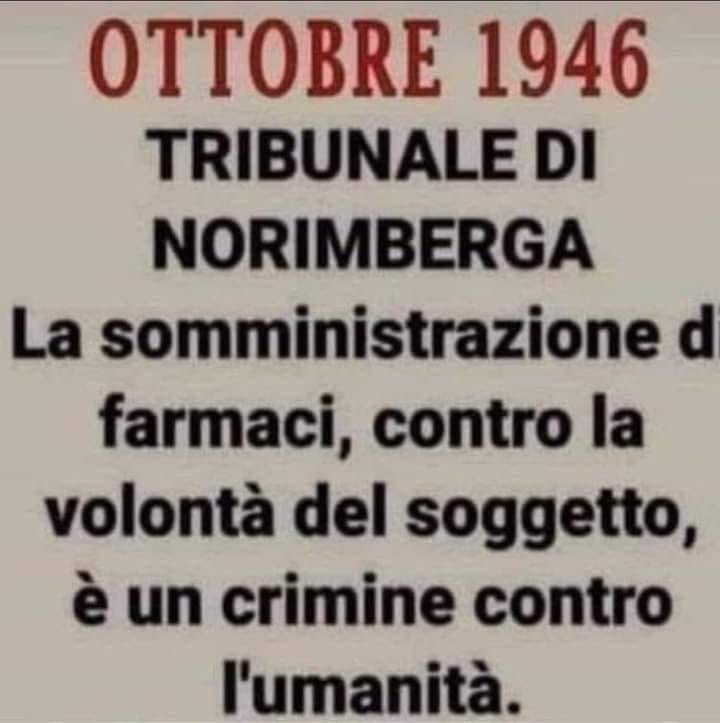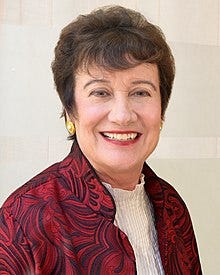Maslach & Von der Leyen are PSYCHOPATHIC CRIMINALS!
Maslach & Von der Leyen sie sind Psychopathische Kriminelle!
https://www.facebook.com/share/v/44h6DoAYszLErRt6/
Why are you I'm sorry. 1,000 people are dead because of you. You're a war criminal. You're a war criminal, and you're doing propaganda for the EU. You're talking about democracy and women's rights.
This is not what the EU is about. You're a war criminal. Call for ceasefire. No. Call for ceasefire.
I'm sorry. We bow sides. You are a war criminal. You are a shame for Germany. These are the So why is Maslach doing this?
If Maslach is actually democratically interested in the EU, why are they getting to come online and get here? And you guys know she's a war criminal. She is a war criminal. A war criminal. 15,000 children are dead, and you're pretending like this is democracy.
You're pretending like this is democracy. You really wanna tell me this is okay? She is a war criminal that Germany has been front of the Hague. Germany is in front of the Hague, and Masstige is pretending like she's not a Zionist. And Masstige should be ashamed, ashamed for getting polo lines coming.
We heard ashamed. All of them were Zionist. Is gonna All of them were Zionist. All of them were Zionist. All of them were Zionist.
All of them were Zionist. All of them were Zionist. For getting that 30,000 people are dead. 30,000 of them are dead, and all of you are saying nothing.
https://www.facebook.com/share/v/44h6DoAYszLErRt6/
ITALIANO
Perché sei, mi dispiace. 1.000 persone sono morte a causa tua. Sei un criminale di guerra. Sei un criminale di guerra e stai facendo propaganda per l'UE. Stai parlando di democrazia e diritti delle donne.
Non è questo lo scopo dell’UE. Sei un criminale di guerra. Invito al cessate il fuoco. No. Invito al cessate il fuoco.
Mi dispiace. Ci inchiniamo ai lati. Sei un criminale di guerra. Sei una vergogna per la Germania. Questi sono i Allora perché Maslach sta facendo questo?
Se Maslach è effettivamente democraticamente interessato all’UE, perché riescono a collegarsi online e ad arrivare qui? E voi ragazzi sapete che è una criminale di guerra. Lei è una criminale di guerra. Un criminale di guerra. 15.000 bambini sono morti e tu fai finta che questa sia la democrazia.
Stai fingendo che questa sia la democrazia. Vuoi davvero dirmi che va bene? Lei è una criminale di guerra che la Germania ha denunciato all'Aja. La Germania è davanti all'Aia e Masstige finge di non essere sionista. E Masstige dovrebbe vergognarsi, vergognarsi di aver fatto arrivare le linee di polo.
Abbiamo sentito vergogna. Erano tutti sionisti. Erano tutti sionisti. Erano tutti sionisti. Erano tutti sionisti.
Erano tutti sionisti. Erano tutti sionisti. Per aver capito che sono morte 30.000 persone. 30.000 di loro sono morti e tutti voi non dite nulla.
Christina Maslach - Wikipedia
https://en.m.wikipedia.org/wiki/Christina_Maslach
Search
Christina Maslach
Christina Maslach (born January 21, 1946)[1] is an American social psychologist and professor emerita of psychology at the University of California, Berkeley,[2] known for her research on occupational burnout.[3] She is a co-author of the Maslach Burnout Inventory[4] and Areas of Worklife Survey.[5] Early in her professional career, Maslach was instrumental in stopping the Stanford prison experiment.[6] In 1997, she was awarded the U.S. Professor of the Year.
Christina Maslach
BornJanuary 21, 1946 (age 78)Alma materRadcliffe College (AB)
Stanford University (PhD)Occupation(s)Psychologist, psychology professorKnown forStopping the Stanford prison experimentSpouse
(m. 1972)
Education and careeredit
Maslach graduated from Berkeley High School (California) (1963), Radcliffe College (1967) and earned a Ph.D. in Psychology at Stanford University (1971).[7] After receiving her Ph.D., Maslach joined the psychology department at Berkeley as an assistant professor.[2]
Her critique of the Stanford prison experiment persuaded investigator Philip Zimbardo (later her husband) to stop the experiment after only six days.[6] The experience also shaped Maslach's later career, particularly her interest in occupational burnout[8] as a response to unavoidable stress.[9] Maslach and Zimbardo married in 1972, a year after the study.[10]
In 1981, Maslach and Susan E. Jackson authored the Maslach Burnout Inventory (MBI) to assess an individual's experience of occupational burnout in human services settings.[4] She later developed alternative versions of the original MBI to be used to assess education settings (1986) and general occupational settings (1996).[11] More than 30 years later, in 2014, Maslach Burnout Inventory was still being cited as "the mainstream measure for burnout."[12]
From 1988 to 1989, she was President of the Western Psychological Association (WPA). Since 2001, she has been Vice Provost for Undergraduate Education at the University of California, Berkeley.[7]
Awards and honorsedit
In 1991, Maslach was elected a Fellow of the American Association for the Advancement of Science. She is also a Fellow of the American Psychological Association[7] and of the WPA.[13]
At Berkeley, Maslach has received the Distinguished Teaching Award and the Social Sciences Service Award.[14] In 1997, she was named the U.S. Professor of the Year by the Council for Advancement and Support of Education and the Carnegie Foundation for the Advancement of Teaching in 1997.[15] In 2008, Maslach won the WPA Outstanding Teaching Award.[13]
Referencesedit
^ "Archived copy" (PDF). Archived from the original (PDF) on 2020-09-03. Retrieved 2017-09-27.
^ Jump up to:a b Worth, Katie. "When Scientists Are Mad about Each Other". Scientific American. Retrieved 2018-01-05.
In lectures they frequently discuss the moment when Maslach argued with Zimbardo in the parking lot, which Zimbardo describes as an act of heroism, because she stood up for her principles even though she knew the consequence might be losing his and his colleagues' approval—and ending a relationship she cared about.
^ Scott Plous. "Christina Maslach". Maslach.socialpsychology.org. Retrieved 2012-06-27.
^ Jump up to:a b Maslach, C.; Jackson, S.E. (1981). "The measurement of experienced burnout". Journal of Occupational Behavior, 2, 99–113.
^ Leiter, M.P; Maslach, C. (1999). "Six areas of worklife: A model of the organizational context of burnout". Journal of Health and Human Resources Administration, 21, 472–489.
^ Jump up to:a b "The Stanford Prison Experiment: Still powerful after all these years (1/97)". News.stanford.edu. 1996-08-12. Archived from the original on 2011-11-18. Retrieved 2018-07-12.
Maslach walked into the mock prison on the evening of the fifth day. Having just received her doctorate from Stanford and starting an assistant professorship at Berkeley, she had agreed to do subject interviews the next day and had come down the night before to familiarize herself with the experiment.
^ Jump up to:a b c Curriculum vitae Archived 2012-08-23 at the Wayback Machine, retrieved 2012-06-22.
^ "Signs of Job Burnout". Spark Podcast. Retrieved 2020-10-22.
^ Ratnasar, Romesh (2011). "The Menace Within". Stanford Alumni Magazine. Retrieved July 12, 2018.
The clearest influence the study had on me was that it raised some really serious questions about how people cope with extremely emotional, difficult situations, especially when it's part of their job—when they have to manage people or take care of them or rehabilitate them. So I started interviewing people. I started with some prison guards in a real prison, and talked to them about their jobs and how they understood what they were doing...I interviewed people who worked in hospitals, in the ER. After a while I realized there was a rhythm and pattern emerging, and when I described it to someone they said, "I don't know what it's called in other professions, but in our occupation we call it 'burnout.'
^ Ratnesar, Romesh. "The Menace Within". Stanford Magazine. No. July/August 2011. Stanford, California: Stanford University. Archived from the original on November 10, 2018.
^ Maslach, C.; Jackson, S.E.; Leiter, M.P. (1996–2016). Maslach Burnout Inventory Manual (Fourth Edition). Menlo Park, CA: Mind Garden, Inc.
^ Loera, Barbara (December 12, 2004). "Evaluating the Psychometric Properties of the Maslach Burnout Inventory-Human Services Survey (MBI-HSS) among Italian Nurses: How Many Factors Must a Researcher Consider?". PLOS ONE. 9 (12): e114987. doi:10.1371/journal.pone.0114987. PMC 4264862. PMID 25501716. S2CID 4583719.
The Maslach Burnout Inventory (MBI) is the mainstream measure for burnout.
^ Jump up to:a b Program for 88th Convention of the WPA, 2008 Archived 2010-07-15 at the Wayback Machine, retrieved 2012-06-25.
^ "Christina Maslach". University of California, Berkeley. Retrieved May 24, 2014.
^ McBroom, Pat. "UC Berkeley professor of psychology, Christina Maslach, is chosen to be U.S. Professor of the Year by CASE". University of California, Berkeley. Retrieved May 24, 2014.
External linksedit
Scholia has an author profile for Christina Maslach.
Page at Center for Occupational and Environmental Health at the University of California, Berkeley
Last edited 6 months ago by InternetArchiveBot
RELATED ARTICLES
Content is available under CC BY-SA 4.0 unless otherwise noted.









